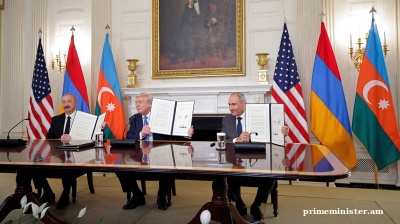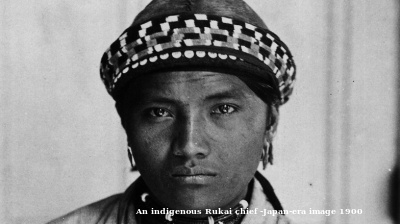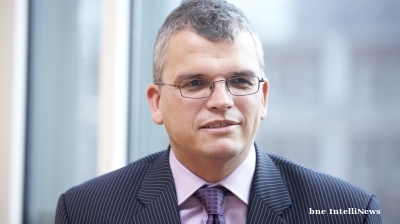“What kind of a people do they think we are?” This question was asked by British prime minister Winston Churchill in a speech to a joint session of the US Congress on December 26, 1941, soon after the US was struck at Pearl Harbour and declared war on Japan, and soon after Italy and Germany declared war on the US. For Ukrainians, the question is as relevant today, when referring to Russia, as it was when Churchill first posed it. Here’s the very short video clip of Churchill asking the question.
Today, instead of the Axis Powers being the object of Churchill’s question, for Ukrainians the object of the question posed by Churchill is Russia and, perhaps to a lesser extent, Germany, France and even the US. All four countries have suggested that Ukraine agree to implement the Minsk II Agreement, signed by France, Germany, Russia and Ukraine, in the wake of Ukraine’s defeat at Debaltseve in February 2015. As far back as December 2, 2021, US Secretary of State Antony Blinken stated that implementing Minsk II on Russian terms is the only diplomatic solution.
The Minsk II agreement would give the occupied area of Donbas, made up of two “People’s Republics” effectively controlled by Russia a de facto veto over Ukraine’s foreign, national security and economic policies. For Ukraine, implementing Minsk II on Russia’s terms would give Russia everything they want, without them having to fire a shot.
By putting pressure on President Volodymyr Zelenskiy to implement Minsk II on Russia’s terms, Germany, France and apparently the US are pressuring Ukraine into doing something that would be unacceptable in any one of these countries, namely heads of government ignoring the will of their citizens. Ukrainians will not allow their government to enact Minsk II on Russia’s terms, but these countries are suggesting that the will of the vast majority of Ukrainians be ignored.
In his speech to the joint session of the US Congress, the underlying tone of Churchill’s voice was outrage. Ukrainians must also be outraged, by being pressured to effectively give up their sovereignty by leaders of countries, all of whom should know better.
Churchill also spoke about not taking “proper measures” to avoid the “renewal of the curse”, in this case Russian pressure on Ukraine. This remark is also as relevant today as it was then. The United States and other countries should have started providing Ukraine with the means to defend itself in spring 2014, rather than waiting until 2021, when Russia has over 100,000 troops near its border with Ukraine.
What kind of people are Ukrainians, those who would willingly ask the question posed by Churchill? Here are a few examples, of people it has been my honour to know personally (family names deleted):
Oksana – an OB/GYN in her normal life, during the Revolution of Dignity Oksana helped set up a network of makeshift hospitals, many in the basements of churches. The hospitals contained donated equipment and medical supplies. Doctors worked at night because, during the day, they were expected at their places of employment, mostly state-owned hospitals where they would have been subject to arrest had they been absent.
Vadym – part of “AutoMaidan”, a group who used their vehicles as an instrument to support the success of the Revolution of Dignity, Vadym drove wounded protestors from Independence Square to the makeshift hospitals, because it was too dangerous for wounded protestors to be treated at state-owned hospitals. On one occasion, when Vadym went to a carwash, the attendant saw bloodstains on the back seat of his car. He declined to accept payment.
Elina and Elena – they both worked in the sales department at one of Kyiv’s luxury hotels. At the end of the working day they changed out of their business attire and into work clothes, and went to one of the kitchens set up on Independence Square, where they spent the night preparing sandwiches for the protestors, and then returned to work the next day.
Yuri – a lawyer trained in evasive driving. He was tasked with keeping high-profile protestors safe from arrest by the government, by moving them from house to house. On the morning of February 20, 2014, Yuri was standing on the footbridge spanning Institutska Street, when the person standing next to him was hit by a bullet fired by a sniper acting under orders of Yanukovich’s government. Yuri and another person got him to an aid station, where he died.
Oleg – a businessman with a big SUV, Oleg used his car to transport used tyres to Independence Square, where they were used to shore up barriers and later, on the night of February 18 and 19, the tyres were set alight. The smoke from the burning tires served to hold back interior ministry police who nearly overran Independence Square. When delivering tyres, Oleg told me that he always wore a suit and a tie, to try to convince the police who were inspecting cars that he was only trying to get home from his office. The tyres came from two recycling facilities located outside of Kyiv. Both facilities were emptied of tyres in two days.
Andrei – a retired Ukrainian businessman who was very successful in investing in Russia, Andrei purchased and distributed night vision equipment for a unit of the Ukrainian Army fighting in Donbas. This is one example of how the Ukrainian Army was funded and equipped during the spring of 2014, after the illegal annexation of Crimea
Yaroslav – a member of a group of businesspeople from a city in Western Ukraine who set up a clearinghouse in a restaurant owned by one member of their group. From there, the members coordinated the distribution of money, supplies and people working for their companies to and from Independence Square. They told me that, along with the local Greek Catholic Church and the local university, they raised $100,000 in one day, in support of the Revolution of Dignity. So much for the Russian assertion that the Revolution of Dignity was a “fascist coup” or that it was financed by the United States. In 2016 I had the honour of meeting several of the members, at the same table where they ran operations during the revolution.
Anna – an art critic. At the beginning of the Revolution of Dignity, she went to a meeting of protest organisers carrying a book showing how the ancient Roman legions constructed defensive barriers. She was told to leave, and not to bother them. A couple of days later they called her, asked her to come back, and to bring her book. There were around 12 barriers that were built to provide protection for Independence Square. Anna later became the commander of a women’s volunteer battalion, one of many that were organised during the protests.
Pickup trucks – driven by civilians, they had to drive through territory controlled by the separatists, and they braved hostile fire to re-supply Ukrainian soldiers defending the Donetsk Airport.
I have read many articles about the current crisis in Ukraine, perpetrated by Russia. Very few of these articles speak about individual Ukrainians and their courage. They have every right to ask Russia, as well as other countries attempting to force Ukraine into enacting Minsk II, “What kind of people do they think we are?”
Robert Homans is an international financial sector consultant based in Washington DC and tweets at @rhomansjr
Opinion

Europe faces harsh realities in Ukraine as long war looms - Ash
Timothy Ash, senior sovereign strategist at BlueBay Asset Management in London, says European policymakers are belatedly waking up to the fact that the war in Ukraine is set to be prolonged — and that they alone may have to foot the bill.

COMMENT: US-brokered Armenia-Azerbaijan peace deal exposes Russia’s strategic failures
The recent peace breakthrough between Armenia and Azerbaijan is a major diplomatic win for the United States and a setback for Russia, according to a new report published by the Atlantic Council.

COMMENT: Why Beijing will never take Taiwan
Xi Jinping needs to think again before he sends so many young Chinese men and women to their deaths on Taiwan, for if the PLA does one day dare to land, they will be buried here.

COMMENT: Ukraine’s coming financial storm
“A crisis is drawing ever closer. It will break in Ukraine, but it won’t begin on the frontlines, where the country’s battle-weary brigades continue to impose a brutal cost on the Russian invader," writes Timothy Ash of BlueBay Asset Management.



